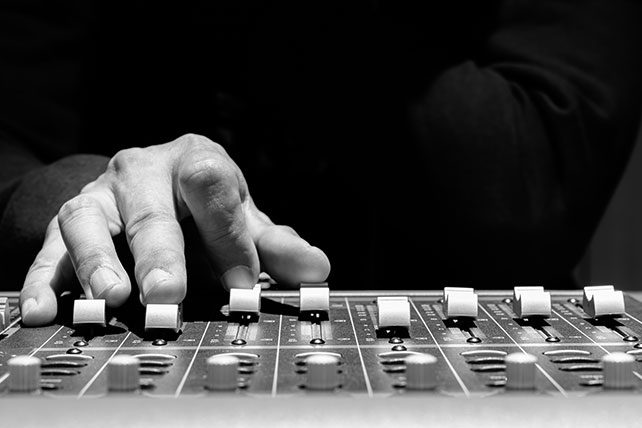This sometimes means bypassing the front-of-house mixer altogether for online production. With isolated tracks sent directly to a computer, sound techs can mix separately for the room and the stream. Some churches use a second digital mixer or virtual mixing environment just for livestream audio. In these cases, the traditional mixer becomes less central—especially if the sanctuary system is set and forget, with minimal live adjustments needed.
Simple Setups Might Not Need a Mixer at All
If your church uses only a couple of microphones and maybe a keyboard or acoustic guitar, you might not need an audio mixer in the traditional sense. USB microphones, audio interfaces with basic software controls, or compact digital boxes like the Behringer Flow or Yamaha Stagepas can combine and adjust inputs with minimal complexity.
In these smaller settings, simplicity is often more important than flexibility. Volunteers may find a smartphone-controlled digital box easier to use than a 16-channel analog board. Plus, these compact solutions are often more budget-friendly and portable. Saying good-bye to your mixer in favor of something more streamlined might be the right move for small congregations or ministry teams that don’t require complex routing or stage monitoring.
RELATED: The Epic Formula for Great Sound
When the Audio Mixer Is Still Indispensable
Of course, not every church is ready—or able—to ditch the mixer. For larger worship teams, multiple vocalists, stage monitors, in-ear systems, and dynamic worship styles, a physical or digital mixer is still essential. It allows detailed control, real-time adjustment, and precise EQing that other tools may not replicate well.
Additionally, some tech volunteers simply prefer the tactile feel of physical faders and knobs. There’s a level of control and confidence that comes with having everything in front of you, especially during live services when quick changes are needed. And for mid-sized or growing churches, investing in a good digital mixer now can provide a foundation for future expansion.
So, Should You Say Good-bye to Your Audio Mixer?
Here’s the bottom line: You shouldn’t eliminate your audio mixer unless it truly no longer fits your needs. If your setup is simple, highly digital, or streaming-focused, you might be able to replace it with more compact or automated tools. If your worship environment is complex, high energy, or volunteer-driven, your mixer is still your best friend.
Instead of thinking in terms of replacement, consider whether you should upgrade, simplify, or reallocate your audio gear. The goal isn’t to get rid of the mixer—it’s to ensure your tools serve your ministry as effectively and efficiently as possible.
Your church’s sound isn’t about the gear. It’s about creating an environment where people can clearly hear the message of the gospel and respond. Whether that happens through a big digital console, a tablet, or a tiny audio box on the floor, your decision should be guided by mission, not tradition.

